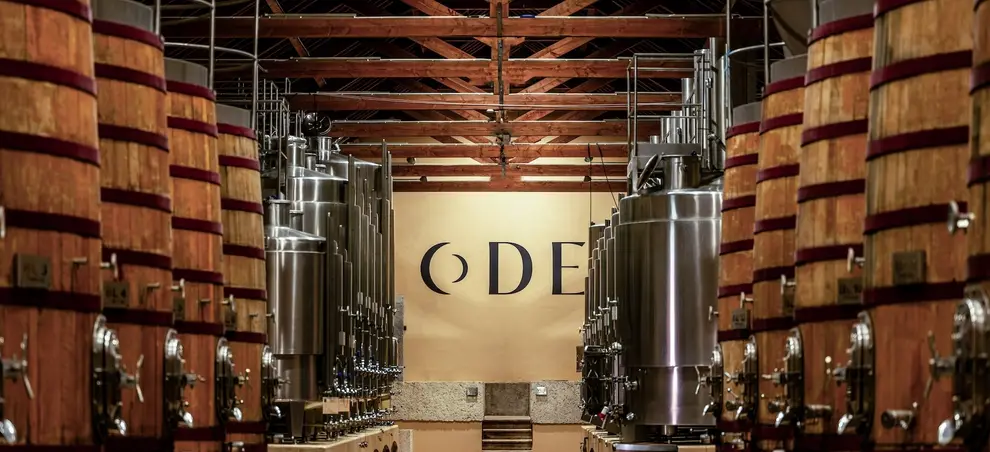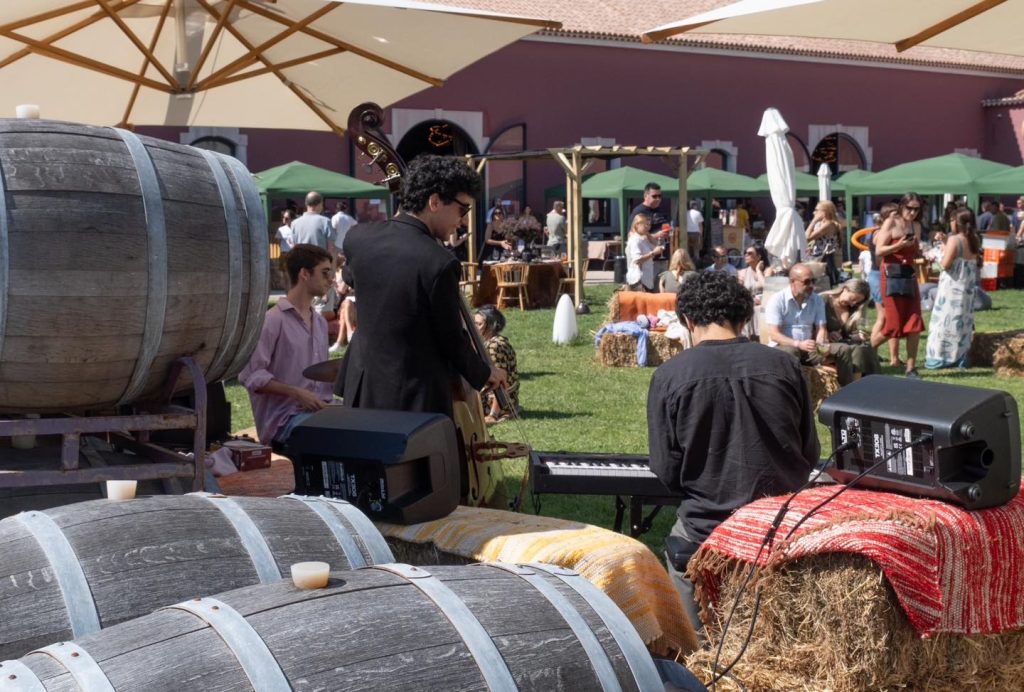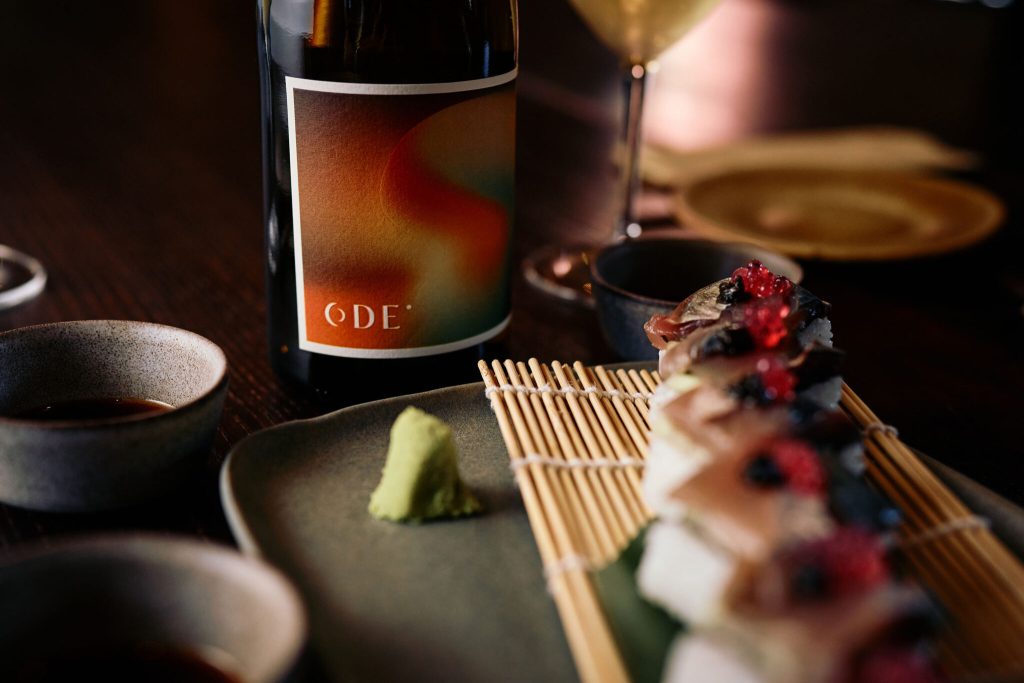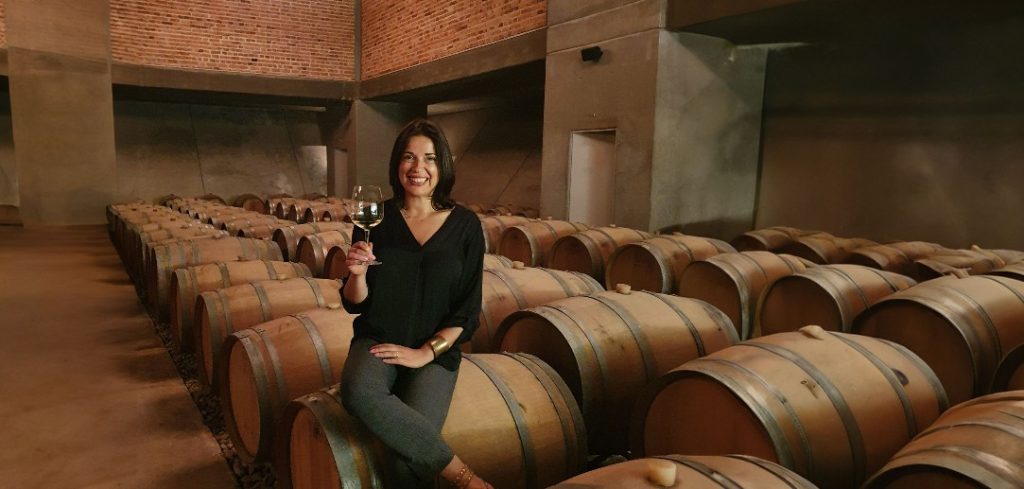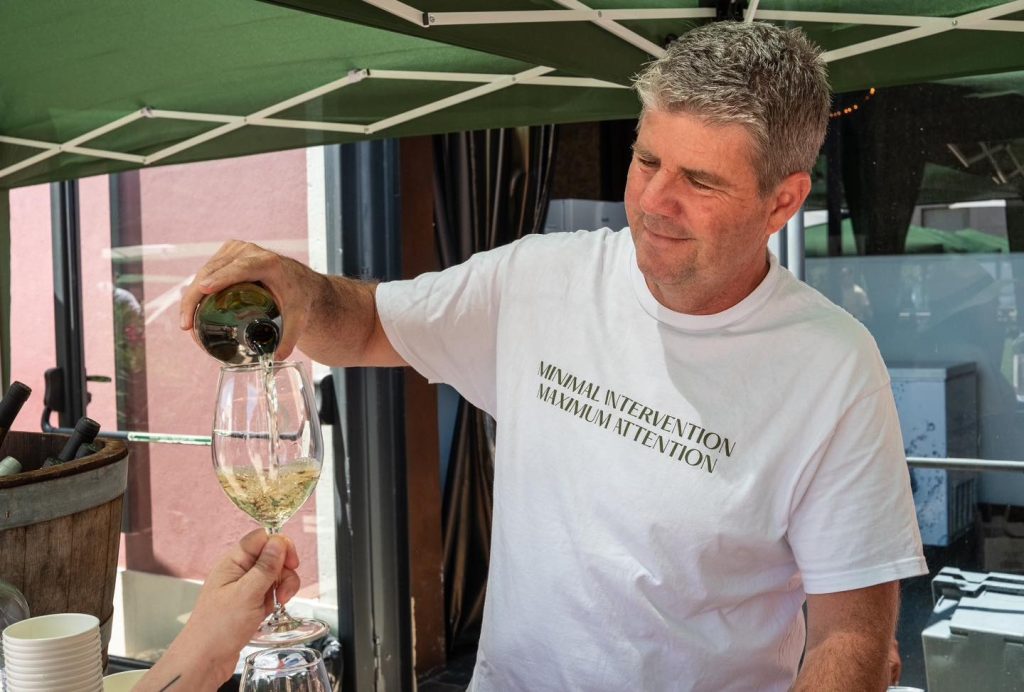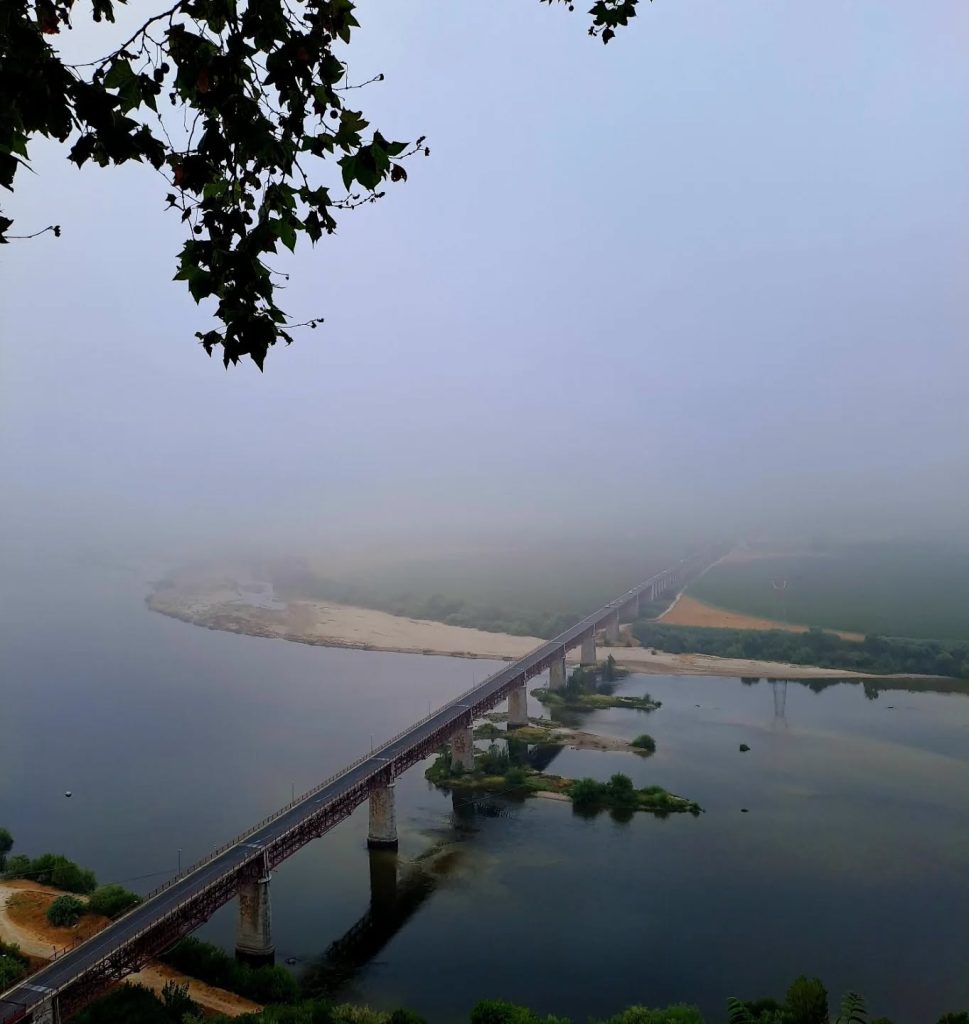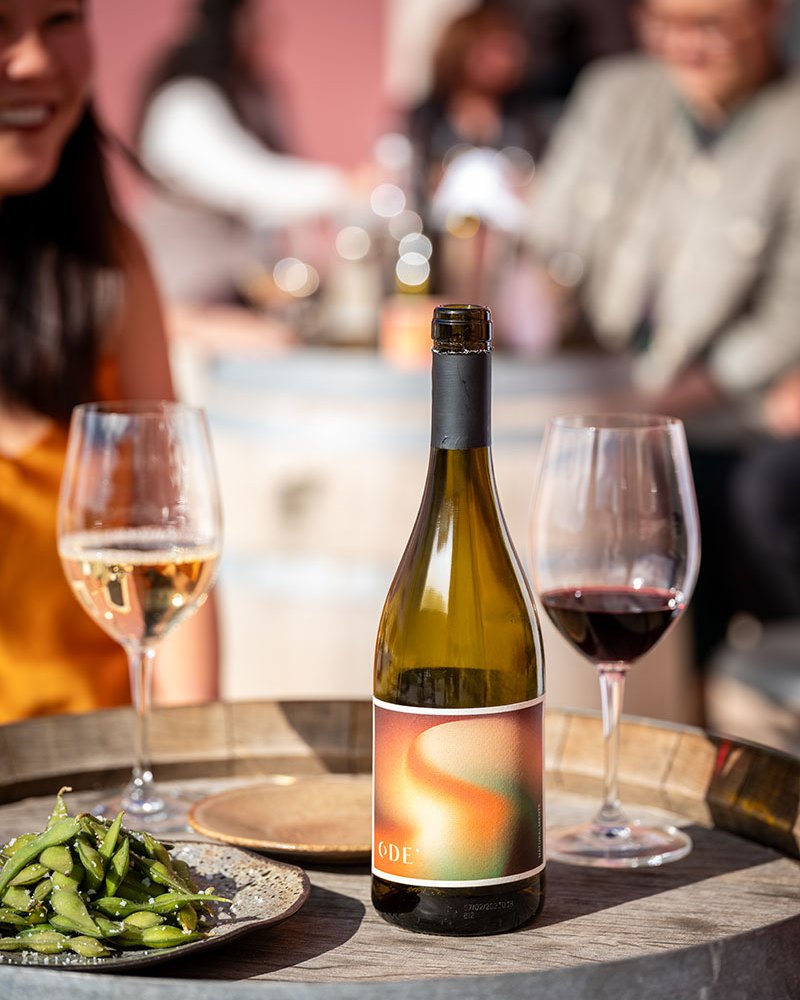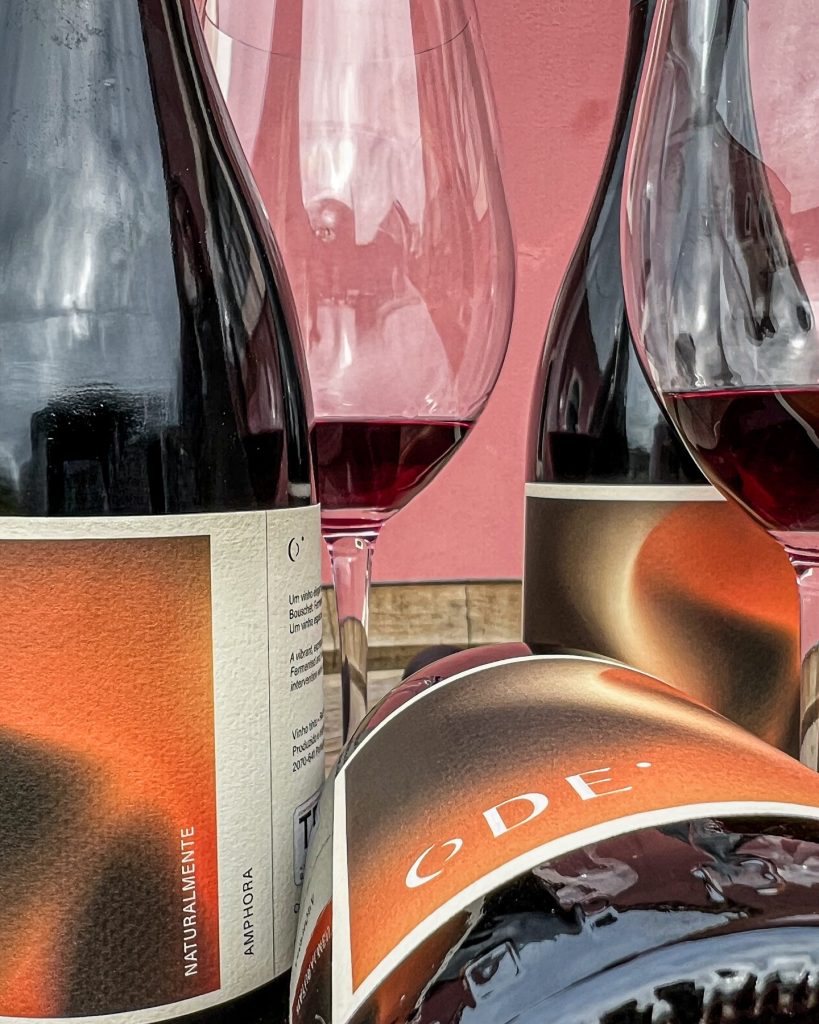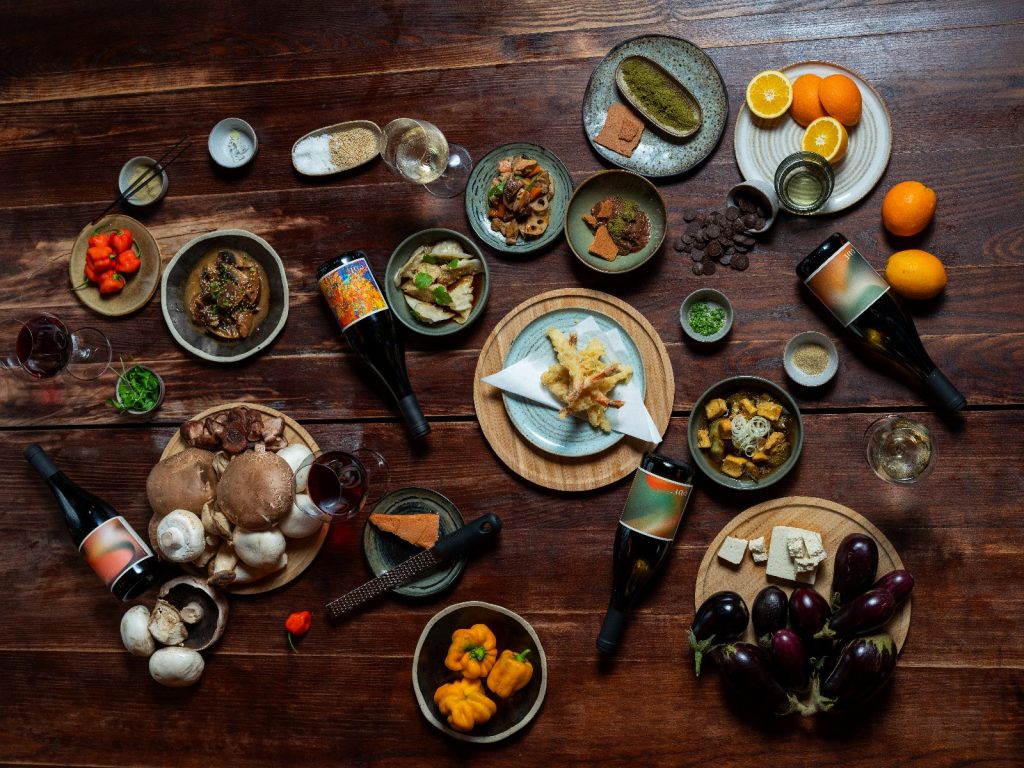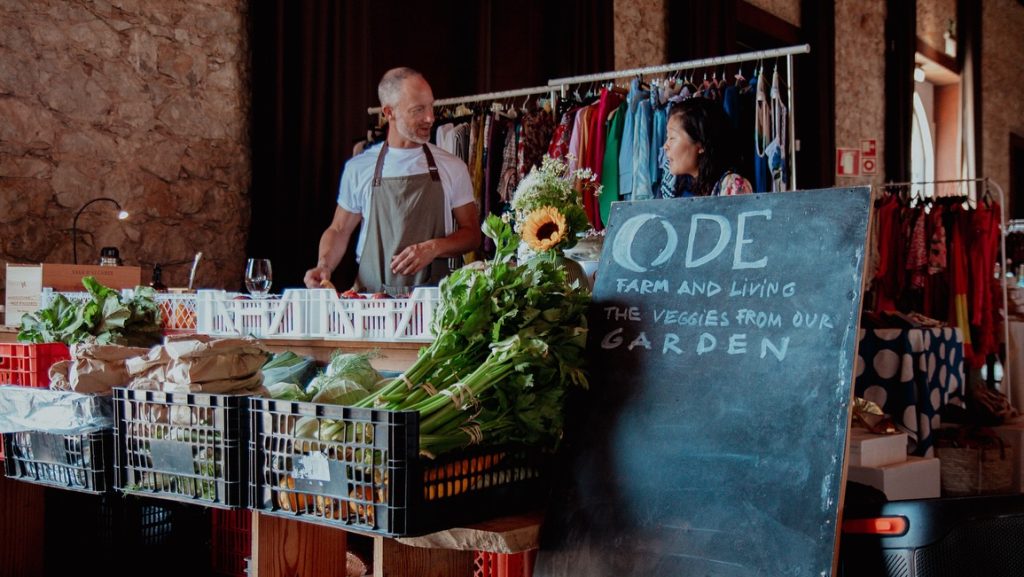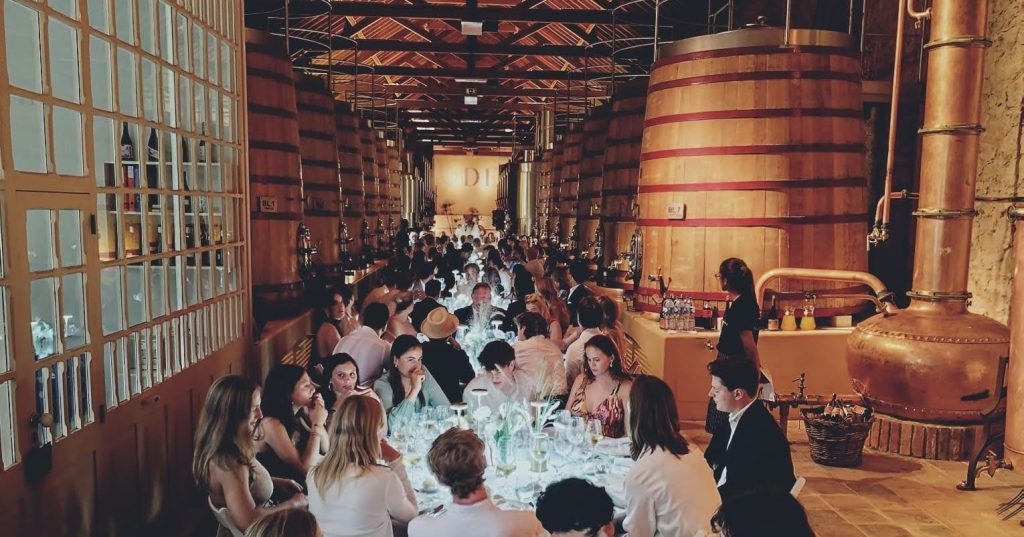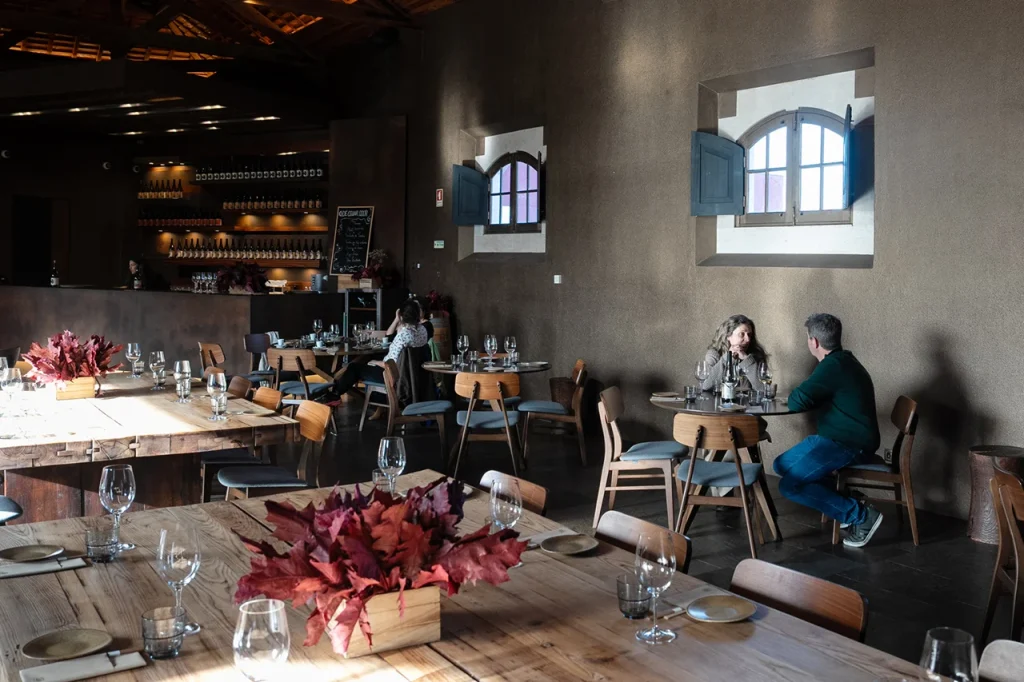ODE to Joy
The Moors arrived on the Iberian Peninsula from North Africa in 711 AD, establishing a civilization known as al-Andalus, which was ruled by a series of caliphates for over 400 years.
On July 25th, 1139, at Vila Chã de Ourique, Count Afonso Henriques and his troops defeated a much larger Moorish army commanded by the Almoravid governor of Córdoba, Muhammad Az-Zubayr Ibn Umar (King Ismar). Sometimes referred to as the ‘Slaying of Five Kings’, Ismar had sent in garrisons (and their leaders) from Seville, Badajoz, Elvas, Évora, and Beja against the Portuguese Count, all of whom failed and fell in defeat.
The victory at Vila Chã de Ourique is considered the foundation of Portuguese national identity, heralding the proclamation of Afonso Henriques, crowned Afonso I, the first king of an independent Portugal, on the 26th of July 1139.
Vila Chã de Ourique, on the northern banks of the Targus River, is today an important centre for wine and a culinary destination just under an hour’s drive from Lisbon.
Joy
“All creation drinks with pleasure,
Drinks at Mother Nature’s breast;
All the just, and all the evil,
Follow down her rosy path.
Kisses she bestowed, and grape wine,
Friendship true, proved e’en in death;
Every worm knows nature’s pleasure,
Every cherub meets his God.”
-Ode to Joy, Friedrich Von Schiller 1785
Ludwig Van Beethoven performed his final completed work, Symphony No. 9 in D minor, for the very first time in Vienna on 7th May 1824. It is considered remarkable for its soaring grandeur and epic scale, especially its final movement, which features a full chorus and vocal soloists. This was the first symphony to incorporate vocals and chorus into what had previously been a purely instrumental genre.
The words for the final movement are from ‘Ode to Joy’, the deeply moving poem written by Friedrich Von Schiller in 1785. The poem is a timeless anthem to freedom, peace, equality, fraternity and universal happiness.
The composition is scored for soprano, alto, tenor and bass soloists, mixed chorus, piccolo, two flutes, two oboes, two clarinets, two bassoons, contrabassoon, four horns, two trumpets, three trombones, timpani, bass drum, cymbals, triangle, and strings. It was adopted as the European National Anthem in 1972. In 1985, it became the official anthem of the European Union.
It is documented in his notebooks that Beethoven agonised over the composition, recording that he considered and rejected more than 200 different versions of the “Ode to Joy” theme alone. That night in Vienna was to be the great composer’s first time on stage in twelve years; he must have been nervous and perhaps there was even some self-doubt, for he was about to unleash upon the world a work comparable to no other, something the likes of which they had never heard before.
A story is told that at the end of the performance, Beethoven continued conducting even though the music had ended. One of the soloists stopped him and turned him around to accept the applause. The audience, well aware of Beethoven’s health issues, in addition to clapping, began throwing their hats and scarves in the air, so that he could see their overwhelming approval.
Beethoven never heard a single note of the performance; he never ever heard a rendition of his 9th Symphony at all. He began experiencing hearing loss in his late twenties, sometime around 1798, and by 1815, in his mid-forties, Beethoven was completely deaf.
The only place that Beethoven ever heard what many consider to be his greatest work was in his own imagination, and yet now, some two hundred years later, it is still bringing joy to people to this very day.
ODE
Ode: noun, a lyric poem usually marked by exaltation of feeling and style, something that shows respect for or celebrates the worth or influence of another: homage.
The ODE winery in Vila Chã de Ourique dates back to 1902; it was refurbished at the end of the Millennium, only to be soon left abandoned for a decade. Purchased in 2021 by Australians David Clarkin and Andrew Homan through their Immerso Collective Group. Today, the property, now known as ODE Winery, Farm & Living, is indeed an Ode in itself to the history, heritage, environment, potential, and future of this fine region.
Through its respectful and integrated approach, Ode is a proud and celebrated part of the Vila Chã de Ourique and wider Tejo communities. Combining respect for the environment with the joys of luxury living: fine wine, exceptional dining from local produce and refined accommodation, truly good living, and an Ode to joy.
The wines are made by Maria Vicente, an Alentejo native with some twenty vintages to her name. Her talent and passion soon become obvious; the emphasis is on ‘Maximum Attention, Minimum Intervention’. This is a brave and bold winemaking philosophy that, when you get it right, lets the wines sing of their fruit, place, people, history, and purpose, all in a single glass of wine.
Overseeing the wine and side of the business at this exciting and ambitious project is Australian Jim Cawood. Jim is an old friend who has been involved in the wine and food industry for many years, once upon a time at Catalina in Sydney, later as owner-operator at Ho Chi Minh’s famous Lubu restaurant in Vietnam, as founder of Vino wine company in Vietnam, along with vintages in Yecla, Spain, and more.
The Tagus River, the longest river on the Iberian Peninsula, influences the Tejo region. The waterway is large enough to moderate high temperatures in this Mediterranean climate. The region is divided into three sub-regions: Bairro in the north, slightly elevated in the hills, and with predominantly clay-based soils with some limestone deposits. The Campo region runs along the banks of the Tagus, giving it alluvial soils and cooler air. Then there is the Charneca region to the south; known for its warmer, drier climate and its hungrier, sandy soils littered with river pebbles.
The region is known not only for its wonderful wines and rich history, there is beauty here, the majestic river, olive groves, cork forests, Mertolenga cattle, and Lusitano horses.
The Wines
The renaissance at ODE has been profound, transformative, impactful and exciting, not just for Vila Chã de Ourique, (perhaps a bit like Alfonso’s famous victory here in 1139), it is a bold strike for all those with the daring and freedom to follow their vision and create their own style of winemaking, dining and living.
Whites
ODE Viognier 2023
The ripe, pristine character of the Viognier fruit grabbed my attention, very attractive in the glass. Then, I loved the deft touch of leesy complexity on the palate. Balance was impeccable, all semi-dried apricots, some tropical fruit notes and a nice touch of cut straw and oatmeal giving complexity and length to the wine. A delightful, enjoyable wine showing exceptional quality fruit. 91/100
ODE Semillon 2023
Aromas show quite a bit of complexity here; there are the usual suspects, citrus, field flowers, and wild honey, with delightful touches of pear and allspice. On the palate, there is some richness with lime, pear, wild honey and fresh herbs, all giving way to impressive length and refined acidity. It would be interesting to revisit this wine in five to ten years but why wait when it is so absolutely delicious right now! Pair it with the poet Bulhão Pato’s favourite dish of clams. 92/100
ODE Arinto 2023
I adored this wine, gorgeous ripe fruit aromas of peach, pear and membrillo with some complex notes of vanilla pod, brie crust and custard apple. The palate showed characteristic pristine ripe fruit, with a touch of leesy complexity, along with exceptional and well-integrated acidity. Made me want to grab a bottle or three and head straight to my favourite local Japanese. 94/100
ODE Fernao Pires 2023
Another fantastic white wine from ODE, exciting and enticing aromas of star fruit, guava, kiwifruit, fresh herbs, and an exotic, subtle zephyr of lemongrass and kafir lime.
Clean, fresh and slightly exotic on the palate, what this winery obviously does so well is to capture the purity and freshness of a variety, in the class. This is no exception, with beautiful fruit, tropical and vibrant on the palate, the acidity integrated, balanced and cleansing. It’s all tropical fruits, finger limes, and notes of freshly cut herbs, rounded out by hints of five spice and a delightful swirl of lemongrass on the finish. Can’t wait to try this with a Tom Kha Gai. 90/100
Reds
ODE ‘Amphora’ Alicante Bouschet
A teinturier variety, and one of the few of the vitis vinifera species, its flesh and juice are vibrant red in colour due to anthocyanin pigments in the pulp, not just in the skin like most other red grapes. The variety is a hybrid cultivated in 1866 by Henri Bouschet; it is a cross between Petit Bouschet and Grenache. The Petit Bouschet grape itself is a hybrid created Henri’s father Louis Bouschet.
According to renowned wine writer and Master of Wine, Jancis Robinson, Alicante Bouschet has found its true home in Portugal’s Alentejo, ‘where it was first planted at Herdade do Mouchão in the late 1800s’.
The ODE Alicante Bouschet is fermented and then matured in clay amphorae for 12 months. This is savvy winemaking that gives full expression to this wonderful variety. Aromas lifted, perfumed and endearingly enticing, a melange of dark cherry, cranberry, a hint of cracked pepper, notes of dark chocolate, ginger spice, star anise and clove with a line of sweet pipe tobacco running through it.
The palate is fruit forward, as one would expect; vibrant, sassy, and provocative, an explosion of delightful red berries, spices and a hint of something brooding and earthy peeking from dark places. After the whirlpool of flavours dances across the palate, the impressive structure takes over, a mineral wash of fine, assertive acidity, fresh, cleansing and focused. The flush of cranberry and star anise washing back onto the organoleptic senses like the lingering memory of a stolen kiss. This was a wine I adored and (along with Touriga Nacional) a red variety the Portuguese can own on the world stage. Would love to pair this with smoked duck, charcuterie, hard-mature cheeses or carne asada. 94/100
ODE Touriga Nacional 2022
The tiny berries of this intriguing variety are renowned for producing powerful, brooding, full-bodied reds with depth, power and assertive tannins. At ODE, their approach is a little different, they see the beauty; where others see fierce dragons that need to be tamed, they see the black swan that will show its beauty if gently encouraged.
Pressed by foot in classic stone lagares, I like to think the music is loud, and the treading looks more like dancing. The wine is then fermented and matured in stainless steel tanks. The aromas throw back to the variety’s DNA, pencil shavings, blood and bone, iron filings, axle grease, coffee grinds, and pan spices, along with dark chocolate and even darker berries.
On the palate, the wine is plush with ripe, attractive fruit, blackberries, plums, accompanied by attractive spices, a touch of sage and little bramble. There is an elegance here, and impressive finesse; the tannins are fine, soft, and the acidity subtle. Perhaps not the Touriga Nacional for old poets to drink in the library as they stare into the abyss, but just perfect to enjoy with a slice of lamb pie at a picnic during a drive through the countryside. 93/100
ODE Quarteto 2022
Varieties: Alicante Bouschet 35%, Touriga Nacional 35%, Tinto Barroca 25%, Cabernet Sauvignon 5%.
Aromatically, this is a walk in the forest, violets, blackcurrants, cranberries, dragon fruit, shrooms, wood spice, damp autumn leaves, undergrowth and a whiff of musk. A complex, medium-bodied, red, blackcurrant, cranberry, and dragon fruit swirl onto the palate and embrace in the middle, a juicy core of ripe berries, leading to lovely balanced acidity, and fine, ripe, drying tannins. Would love to pair this with some goat chanfana. 92/100
ODE to Life
Andrew Cyrille is an avant-garde jazz percussionist born in Brooklyn, New York, in 1939. In the December of 1994 he ventured to Dakar, Senegal, where he created ‘Ode to the Living Tree, ’ an ambitious project in a faraway place. After the album was released, Larry Blumenfeld of The Wall Street Journal wrote of Cyrille:
“Good jazz drummers offer firm grounding for adventurous music. Great ones open up altogether fresh landscapes. Andrew Cyrille fits comfortably in the latter category”
ODE to Living
For three Australians on the other side of the world (and the impressive team they have assembled), implementing the concept of ODE Living is indeed an ambitious project in a faraway place. Seeing old landscapes with fresh eyes can open them up to changing everyone’s views.
They call ODE Living “an invitation to life and to interaction with others and the surrounding space, in a conscious, positive, and innovative way”. There is the winery, cellar door, and a restaurant, soon to be joined by a luxury resort, event spaces, and a spa. There are also lodges overlooking the lake and luxury villas as part of the plan.
Underpinning all of this development is the desire to become a part of the region’s nature, its culture, and its community in positive, sustainable, impactful ways, and this is immeasurably important. It fills me with more than just joy to see and learn of all that is going on at ODE, beyond their wonderful wines, I sense possibility here, something we could all one day look at with great hope and approbation.
If the wines at ODE are a glimpse at the ‘Living’ to come, then the Vila Chã de Ourique would appear to be on the brink of enjoying another outstanding victory and a new type of freedom, expressed in how they live and everything they do.
“Port is not for the very young, the vain and the active. It is the comfort of age and the companion of the scholar and the philosopher. ”
-Evelyn Waugh.
The wines at ODE are impressive, delightful, and unashamedly, almost brazenly about the quality of their fruit and about being daring, creative and fun. They are seriously good, award-winning wines, but here are wines for a young Portugal, a new Portugal, an exuberant Portugal, adventurous and ready to be shared with the world.
Darren Gall

